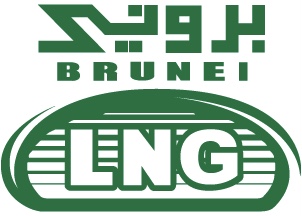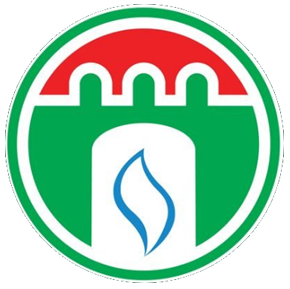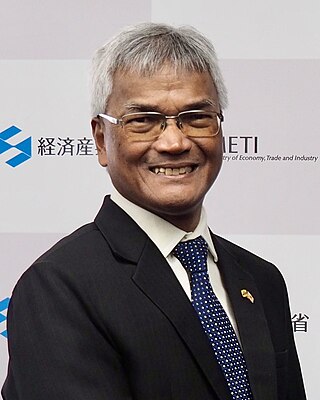
Brunei, officially Brunei Darussalam, is a country in Southeast Asia, situated on the northern coast of the island of Borneo. Apart from its coastline on the South China Sea, it is completely surrounded by the Malaysian state of Sarawak, with its territory bifurcated by the Sarawak district of Limbang. Brunei is the only sovereign state entirely on Borneo; the remainder of the island is divided between its multi-landmass neighbours of Malaysia and Indonesia. As of 2023, the country had a population of 455,858, of whom approximately 180,000 resided in the capital and largest city of Bandar Seri Begawan. Its official language is Malay and Islam is the state religion of the country, although other religions are nominally tolerated. The government of Brunei is a constitutional absolute monarchy ruled by the Sultan, and it implements a fusion of English common law and jurisprudence inspired by Islam, including sharia.

The economy of Brunei, a small and wealthy country, is a mixture of foreign and domestic entrepreneurship, government regulation and welfare measures, and village traditions. It is almost entirely supported by exports of crude oil and natural gas, with revenues from the petroleum sector accounting for over half of GDP. Per capita GDP is high, and substantial income from overseas investment supplements income from domestic production. The government provides for all medical services and subsidizes food and housing. The government has shown progress in its basic policy of diversifying the economy away from oil and gas. Brunei's leaders are concerned that steadily increased integration in the world economy will undermine internal social cohesion although it has taken steps to become a more prominent player by serving as chairman for the 2000 APEC forum. Growth in 1999 was estimated at 2.5% due to higher oil prices in the second half.

Labuan, officially the Federal Territory of Labuan, is an island federal territory of Malaysia. Its territory includes Labuan Island and six smaller islands, off the coast of the state of Sabah in East Malaysia. Labuan's capital is Victoria and is best known as an offshore financial centre offering international financial and business services via Labuan IBFC since 1990 as well as being an offshore support hub for deepwater oil and gas activities in the region. It is also a tourist destination for people travelling through Sabah, nearby Bruneians and scuba divers. The name Labuan derives from the Malay word labuhan which means harbour.

Belait District, or simply Belait, is the largest as well as the westernmost district in Brunei. It has an area of 2,727 square kilometres (1,053 sq mi) and the population of 69,062 as of 2016. The administrative town is Kuala Belait, located at the mouth of the Belait River. The district is commonly associated with the oil and gas industry of the country, mainly concentrated near the town of Seria.

Rasau is an area in Brunei. The area contains one of the two oil fields of Brunei, the Rasau Field, and a small village, Kampong Rasau, which has a population of 103.

The Brunei LNG (BLNG) is the LNG plant in Lumut, Brunei. It is the largest oil and gas producer in the country. Moreover as of 2006, Brunei has been the 4th largest oil producer in Southeast Asia and the 9th largest LNG producer in the world.

Oman LNG is a LNG plant in Qalhat near Sur, Oman. The company was established by the Royal decree of Sultan Qaboos of Oman in 1994. The construction was launched in November 1996, and the plant was commissioned in September 2000. Oman LNG operates three LNG trains with a total capacity of 10.4 million tonnes per year. The company's production facilities are located on the coast at Qalhat near Sur in the South Sharqiyah Governorate, Oman.

Anduki Airfield is a domestic airfield which now primarily operates as a heliport, located in Seria, a town in the Belait District of Brunei Darussalam. Although Anduki Airfield is owned by the Government of Brunei, it is operated and managed by Brunei Shell Petroleum (BSP), who currently fly Sikorsky S-92 and AgustaWestland AW139 helicopters in support of servicing offshore oil platforms. Brunei Shell Petroleum replaced the original grass airstrip with a sealed instrument runway in 2008. Future upgrades include the addition of runway lighting, and an enhanced instrument approach procedure. Operations at Anduki Airfield are carried out in accordance with regulations from the United Kingdom Civil Aviation Authority (CAA) and the European Union Aviation Safety Agency (EASA) standards.

Only 0.05% of Brunei's power was generated using renewable energy, with the remaining 99.95% coming from fossil fuels. The nation established a 10% renewable energy target in the electricity generating mix by 2035 in 2014. When it comes to renewable energy, Brunei has yet to significantly advance and establish itself as a desirable location for investment. From 2020 to 2035, the percentage of renewables must rise by 0.66% year in order to reach the aim. To further the growth of renewable energy, particularly solar energy, which is more plentiful than wind energy, the nation still has to implement a regulatory framework.

Energy in Brunei is related to all of the type of energy and its related infrastructure used in Brunei. Natural gas and diesel are used significantly in Brunei to generate domestic electricity, as well as gasoline and diesel to power its roads. Domestic supplies were undoubtedly still safe, but they were still susceptible to disturbances that would result in power outages and a lack of gasoline. To reduce the country's susceptibility and the economic hazards brought on by interrupted power and fuel shortages, it is crucial to strengthen the dependability of these sources.

Through its five-year National Development Plans, Sultan Hassanal Bolkiah's administration actively promotes the development of a number of key sectors in an effort to spur economic growth. These describe the allocation of government funds and the budget designated for national development in several fields. As the first national development plan to be created in accordance with the goals of Brunei's recently unveiled long-term development plan, better known as Wawasan Brunei 2035, the current 9th National Development Plan (2007–2012) represents a strategic shift in the planning and execution of development projects. Given that Brunei's oil supplies are expected to run out in the near future, Wawasan directly confronts the issue of the country's dependence on gas.

The Oil and Gas Discovery Centre is a science centre in Seria, Belait District, Brunei. It was constructed near the Seria Oil Field and was rebranded Seria Energy Lab (SEL) in 2020. As BSP's flagship initiative, it aims to promote the nation's scientific literacy.

Kampong Sungai Liang or simply Sungai Liang, is a village in Belait District, Brunei, about 40 kilometres (25 mi) from the district's principal town Kuala Belait and 20 kilometres (12 mi) from the oil town Seria. The population was 910 in 2016. It is one of the villages within Mukim Liang. The postcode is KC1135.

Brunei Energy Services & Trading Sdn Bhd (BEST) is a company based in Bandar Seri Begawan, Brunei Darussalam. Established in 2012 as PB Trading Sdn Bhd, it was previously a subsidiary of Brunei National Petroleum Company Sendirian Berhad, also known as PetroleumBRUNEI. Following a restructure of PetroleumBRUNEI and its subsidiaries, the regulatory authority is now known as Petroleum Authority, whilst the trading and services arm of PetroleumBRUNEI was renamed as BEST, and is now under the purview of the Ministry of Finance and Economy. BEST also provides the manpower and resources to its sister companies, Brunei Energy Exploration Sdn Bhd and Brunei Energy Production Sdn Bhd (BEP).
Egret oil field, also known as Egret Field, is a complex oil and gas field in the South China Sea and 45 km north-west of Seria, Belait District, Brunei. It is located at the depth of 60 m, and operated by Brunei Shell Petroleum (BSP).

The Brunei Fertilizer Industries (BFI) is a government owned company and producer of ammonia and urea granular fertilizer, located in Sungai Liang Industrial Park (SPARK), Belait District, Brunei. It is claimed to be one of the largest fertilizer facilities in Southeast Asia, and has a production capacity of 1,365,000 tonnes of urea annually. The facility for BFI started being built in May 2018 and 500 jobs were expected be created when the plant was fully operating.

Matsatejo bin Sokiaw is a retired Bruneian politician who was the Deputy Minister of Energy from 2018 to 2023. Notably, he is also the managing director and CEO of the Brunei National Petroleum Company (PetroleumBRUNEI), the deputy chairman of the Authority for Info-communications Technology Industry (AITI), and the director of Darussalam Assets (DA).

Hajah Rosmawatty binti Haji Abdul Mumin is a Bruneian civil servant and politician who was appointed a member of Brunei's Legislative Council (LegCo) in 2023. She became the first woman to hold a director position at Brunei Shell Petroleum (BSP). She was the first female manager from Brunei to hold this role at BSP and the Shell Group in the Asia-Pacific area.

Haji Salleh Bostaman bin Haji Zainal Abidin is a Bruneian businessman and politician who was among the members of Brunei's Legislative Council (LegCo) appointed in 2023. Addtiitonally, he was the Deputy President of Football Federation of Brunei Darussalam (FFBD), Football Association of Brunei Darussalam (FABD), and chairman of the Institute of Mechanical Engineers Brunei Group (IMechE-BruG).

The National Development Plan (NDP) or natively known as Rancangan Kemajuan Negara (RKN), is the name assigned by the government of Brunei to a plan designed to carry out Wawasan Brunei 2035 and diversify the economy by putting projects, programs, and initiatives into action. The RKN and planning were carried out under the direction of the Department of Economic Planning and Statistics (DEPS).




















